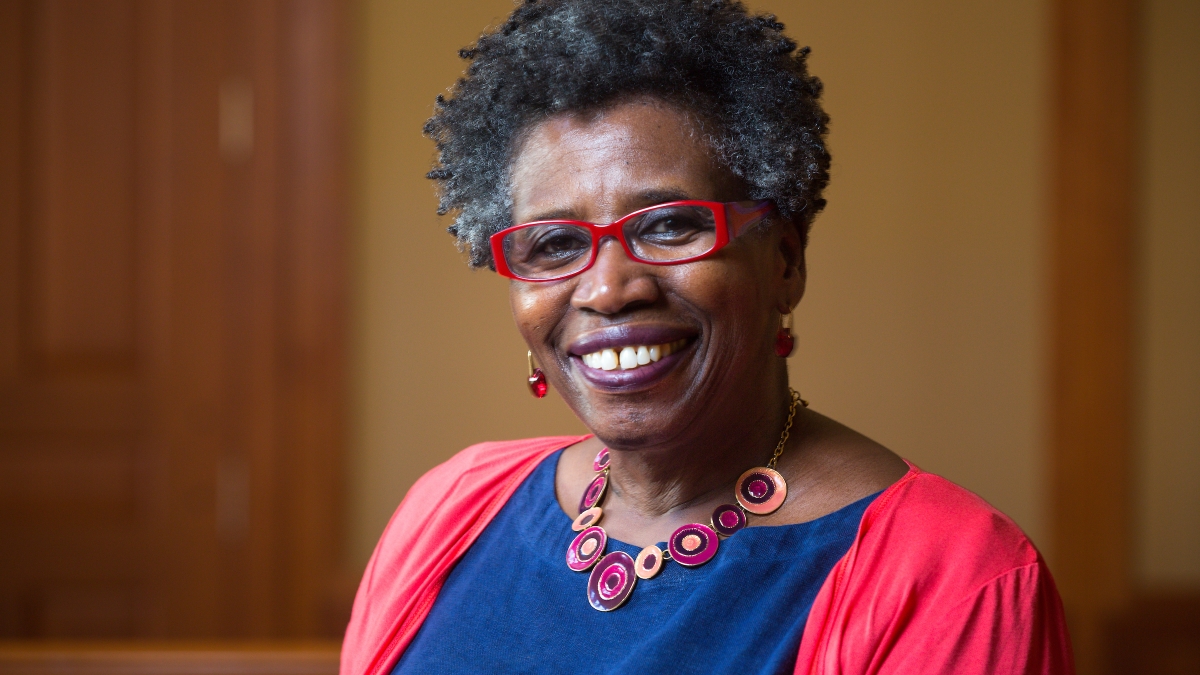ASU professor Stanlie James has taught about diversity and inclusion for many years, from Arizona to Senegal and Uganda.
Now she will step beyond teaching. She will help make it happen.
Mark Searle, ASU's executive vice president and provost, has named James as the new vice provost for inclusion and community engagement. James, an ASU administrator and faculty member for the past decade, will help lead the university community in how to further understand and tackle complicated issues associated with race, gender, ethnicity, religion, sexuality and other forms of diversity.
She will help guide university leaders and faculty, and counsel campus organizations to ensure ASU sustains and accelerates its commitment to inclusion.
“ASU’s charter rightfully declares that we define ourselves by whom we include, rather than whom we exclude,” Searle said. “Stanlie is the ideal candidate to help us advance both that mission and our responsibility to create an environment in which issues of diversity are turned from challenges into opportunities to build understanding. She brings to this role a distinguished record, established across institutions and oceans, that will help us ensure that the ASU community in which we study or work reflects the breadth and perspectives of the world beyond the edges of our campuses.”
James said she is excited about the opportunity to grapple with the issues about which she has taught for years and address them across the university, an institution that changes thousands of lives for the better every year.
“For decades, large institutions, such as the Army and Fortune 500 companies, have been telling us they need students able to work with different cultures, domestically and internationally,” James said. “Universities have not yet fully risen to meet that challenge.”
Those unmet aspirations extend well beyond higher education, she said. Signs of progress, such as greater diversity among elected officials, corporate leaders and entertainment figures, are countered by flashpoints of division in new laws, in political campaigns or on the streets.
“We are not in a post-racial period,” said James, a fourth-generation Iowan and daughter of a dentist and a teacher.
James, a graduate of Spelman College, in Atlanta, received a master’s degree from the University of London’s School of Oriental and African Studies and a master’s and doctorate from the Graduate School of International Studies at the University of Denver. Her career has spanned from social services case worker in Iowa, to visiting professor in a number of African institutions of higher education, to director of ASU’s African and African-American Studies program. She was also a member of the leadership team that envisioned and helped build the School of Social Transformation.
ASU’s mission as a place of learning and its commitment to access is helping to expand the diversity of its students, faculty and staff. While a march towards diversity is in process, the university’s inclusion challenges have evolved rather than been resolved, James said.
For example, students come to ASU with the experience of growing up with friends of different races or nationalities or from the LGBTQ community.
“They have an individual sense of how to deal with people who are different than themselves,” James said. “What they don’t have is a sense of systemized or institutional racism that lingers in our society. You can’t say, ‘There is no racism, because my best friend is of a different race.’”
Issues of inclusion have changed for many universities, she said. Topics of race, once limited to black and white, now span a host of skin colors. States, including Arizona, are moving toward whites becoming a minority population.
“As we engage the notion of ASU, and indeed the state of Arizona, becoming a ‘minority majority’ institution, we must seriously address the challenge of holistic inclusion,” James said. “How we get there will be a critical reflection of who we are as an institution.”
More University news

Year in review: ASU's top stories for 2024
As the year draws to a close, ASU News is revisiting some of the university's biggest stories in 2024 — from big announcements to rare books to the Beatles. So pour a warm cuppa and peruse our…

ASU earns 'Gold' in inaugural Times Higher Education Online Learning Ranking
Arizona State University continues to set the standard in online learning, having earned a Gold rating in the inaugural Times Higher Education Online Learning Ranking 2024. This recognition…
2024 President's Awards honor ASU projects for real-world impact
Ten Arizona State University programs were honored for their real-world solutions during the annual President’s Awards ceremony held on Dec. 6.The awards formally recognize successful solutions in…
